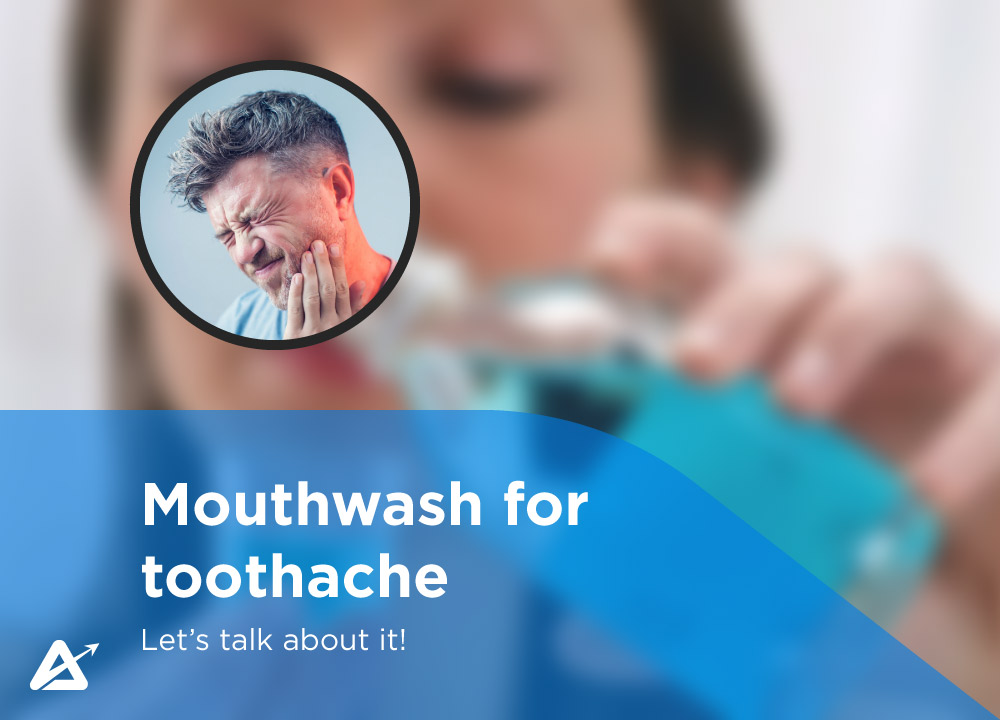The best mouthwash for toothache typically contains benzocaine or clove oil, providing temporary relief from pain and inflammation. Toothaches can be incredibly uncomfortable and can disrupt our daily lives. While it’s important to consult a dentist for a proper diagnosis and treatment, there are temporary measures we can take to alleviate the pain. Mouthwash is one such solution that can provide immediate relief by targeting the source of the pain.
Now we will know in this blog post, that we will explore the best mouthwash options available for toothache relief, considering their effectiveness and key ingredients.
Why does toothache occur?
Toothache occurs primarily due to dental problems and underlying issues. It is often caused by tooth decay, which happens when bacteria in the mouth produce acids that erode the tooth enamel and form cavities. Toothache can also result from dental infections, gum disease, tooth fractures, abscesses, impacted wisdom teeth, or dental trauma. Sensitivity to hot or cold substances, gum inflammation, and nerve irritation can contribute to toothache as well. Consulting a dentist is crucial to identify the exact cause and receive appropriate treatment for toothache.
What is the first thing to do in case of toothache?
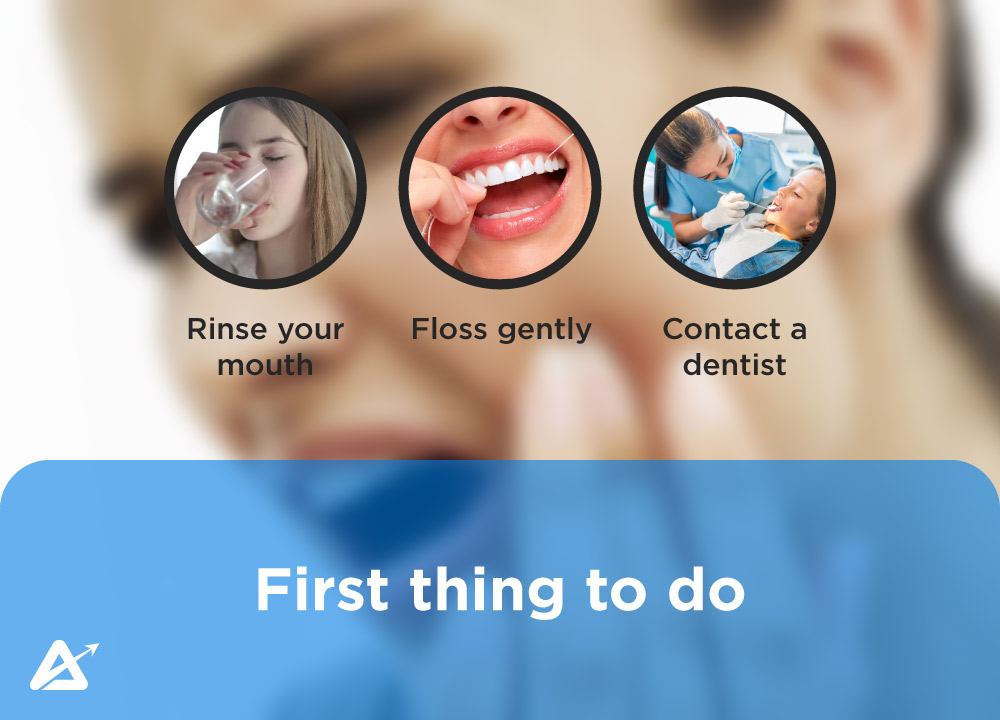
If you experience a toothache, the first thing to do is to take immediate action to alleviate the discomfort and prevent any potential complications. Here are the recommended steps:
- Rinse your mouth: Start by rinsing your mouth with warm saltwater. Dissolve half a teaspoon of salt in 8 ounces (240 milliliters) of warm water and swish it around your mouth for about 30 seconds before spitting it out. This can help reduce inflammation and cleanse the area.
- Floss gently: Sometimes, toothaches are caused by food particles lodged between teeth or along the gumline. Carefully floss around the affected tooth to remove any debris that might be causing irritation. Be gentle to avoid exacerbating the pain or causing bleeding.
- Over-the-counter pain relief: If the pain persists, you can take over-the-counter pain medication such as ibuprofen or acetaminophen. Follow the recommended dosage instructions on the packaging and consult your pharmacist if you have any concerns or underlying health conditions.
- Apply a cold compress: To help reduce swelling and numb the area, you can apply a cold compress or ice pack to the outside of your cheek or jaw near the affected tooth. Wrap the ice pack in a thin cloth or towel and apply it for about 15 minutes at a time with short breaks in between.
- Avoid irritants: Avoid consuming extremely hot or cold foods and drinks, as well as sugary or acidic substances, as they can further aggravate toothache.
- Contact a dentist: It is crucial to schedule an appointment with a dentist as soon as possible. A toothache can indicate an underlying dental issue that requires professional treatment.
Remember, these steps are intended to provide temporary relief until you can see a dental professional.
How important is mouthwash in toothache and why?
Mouthwash can provide temporary relief for toothache, but it is not a definitive solution for treating the underlying cause of the pain. Toothache is often caused by dental issues such as cavities, gum disease, or dental infections, and these problems typically require professional dental care.
However, using mouthwash can help alleviate toothache symptoms by temporarily numbing the affected area or reducing bacteria in the mouth. Some mouthwashes contain ingredients like alcohol or menthol, which can provide a cooling or soothing sensation that may temporarily relieve pain. Additionally, certain antimicrobial mouthwashes can help reduce the number of bacteria in the mouth, which can be beneficial for oral health.
It’s important to note that using mouthwash should not replace proper dental care or delay seeking professional treatment for toothache. If you’re experiencing a persistent or severe toothache, it’s best to consult a dentist who can diagnose the underlying cause and provide appropriate treatment. Mouthwash can be used as a supplementary measure for temporary relief, but addressing the root cause of toothache is essential for long-term oral health.
How does mouthwash work for a toothache?
- Antiseptic properties: Mouthwashes often contain antiseptic ingredients like alcohol or essential oils such as eucalyptol, menthol, or thymol. These substances can help kill bacteria in the mouth, reducing the bacterial load that may be contributing to the toothache.
- Reducing inflammation: Some mouthwashes contain anti-inflammatory agents like chlorhexidine or hydrogen peroxide. These ingredients can help reduce inflammation in the gums and surrounding tissues, which can alleviate pain associated with a toothache.
- Numbing effect: Certain mouthwashes may have ingredients that produce a numbing sensation in the mouth. For example, some mouthwashes contain benzocaine or lidocaine, which are local anesthetics that can temporarily numb the area, providing temporary relief from tooth pain.
It’s important to remember that using mouthwash for a toothache is only a temporary measure and does not address the underlying cause of the pain. Toothaches can be caused by various dental issues, such as tooth decay, gum disease, or an infected tooth, and these conditions typically require professional dental treatment. If you have a toothache that persists or worsens, it’s essential to seek advice from a dentist for a proper diagnosis and appropriate treatment.
Which is the best mouthwash for toothache and why?
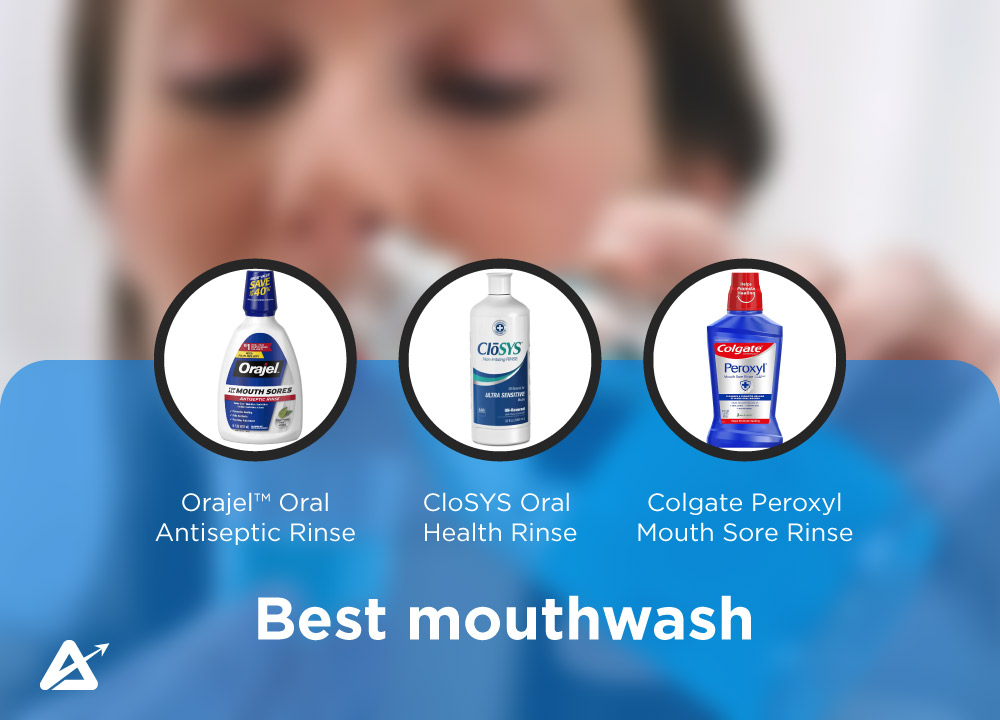
Mouthwash can provide temporary relief for toothache by reducing inflammation and killing bacteria in the mouth. However, it’s important to note that using mouthwash alone will not treat the underlying cause of a toothache. It’s best to consult a dentist for a proper diagnosis and appropriate treatment.
That being said, when choosing a mouthwash for temporary relief, look for one that contains an antibacterial agent, such as chlorhexidine or cetylpyridinium chloride. These ingredients can help reduce the number of bacteria in the mouth. Additionally, a mouthwash with numbing properties, such as benzocaine or lidocaine, may provide some pain relief.
It’s important to follow the instructions on the mouthwash bottle and use it as directed. If your toothache persists or worsens, it’s essential to seek professional dental care to address the underlying issue.
However, here is some mouthwash that is the best for toothache:
| Image | Product | Details | Price |
|---|---|---|---|
 |
Orajel Antiseptic Mouth Sore Rinse, 16 Ounce (Pack of 3) | Brand: Orajel Product Benefits: Antiseptic Liquid Volume: 16 Fluid Ounces Flavor: Mint Age Range: Adult |
Check Price |
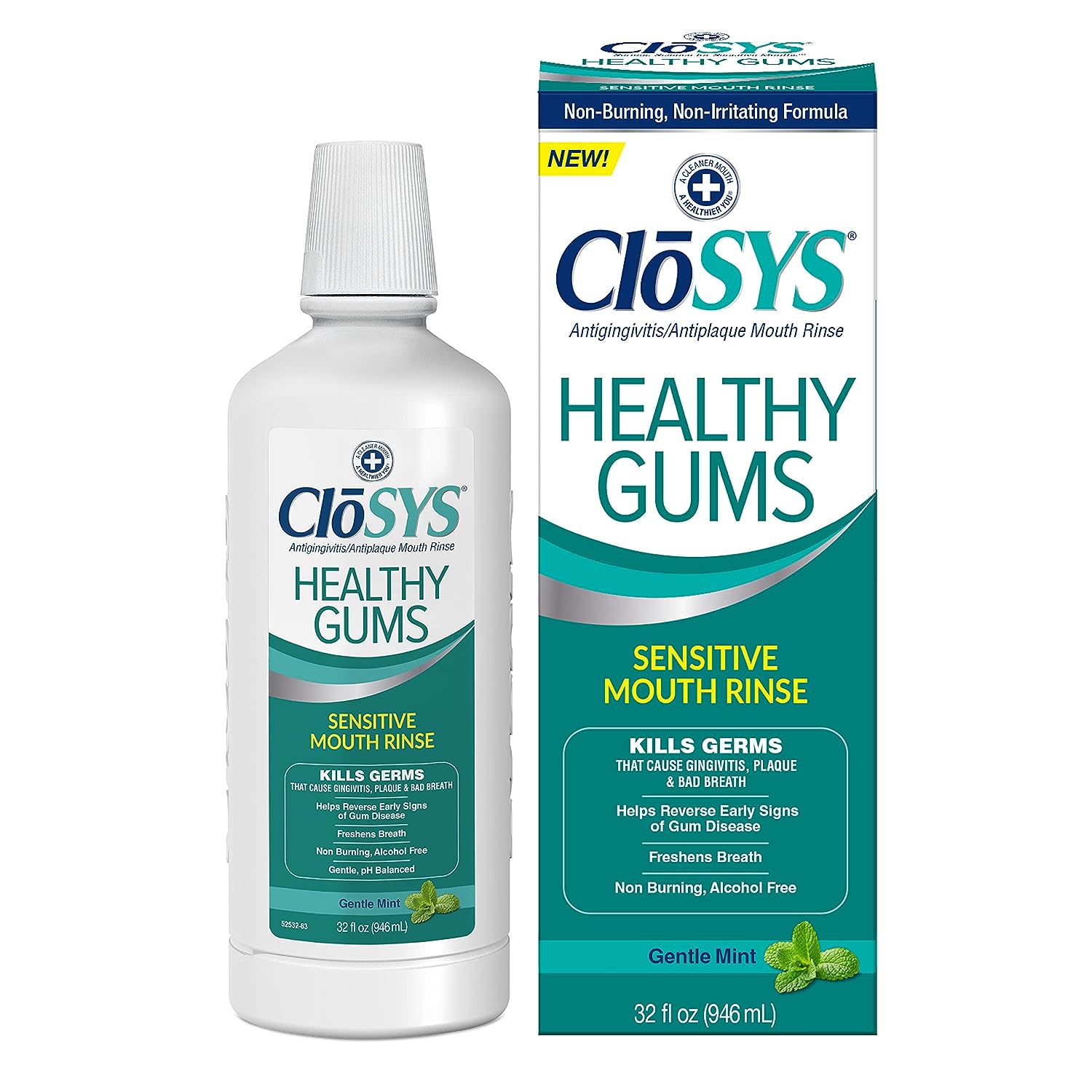 |
CloSYS Healthy Gums Oral Rinse Mouthwash – 32 Fl Oz | Brand: CloSYS Product Benefits: Bad Breath Treatment, Antibacterial, Gingivitis Prevention Liquid Volume: 32 Fluid Ounces Flavor: Healthy Gums Age Range: Adult |
Check Price |
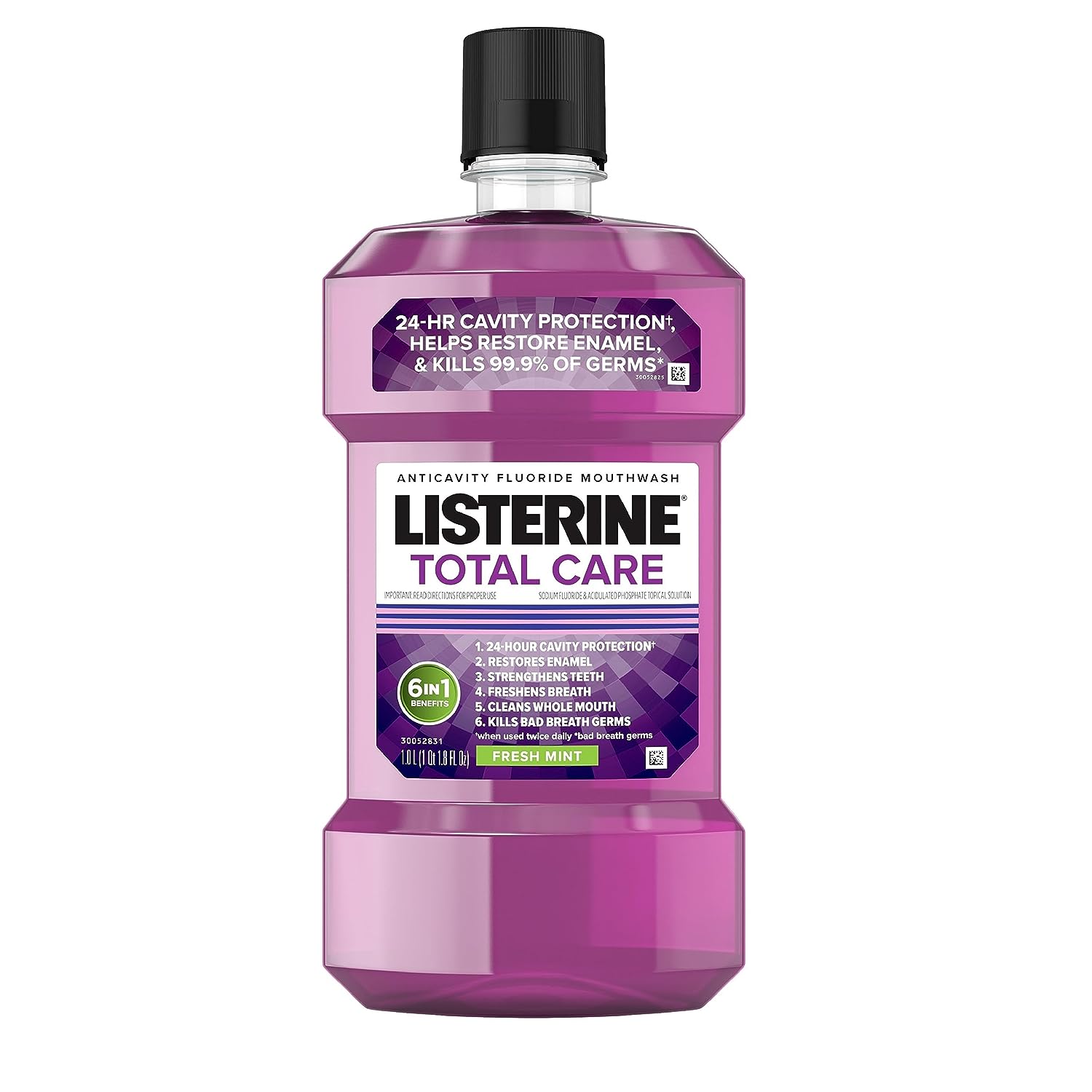 |
Listerine Total Care Anticavity Fluoride Mouthwash | Brand: Listerine Product Benefits: Cavity Protection Liquid Volume: 1 Liters Flavor: Fresh Mint Age Range: Adult |
Check Price |
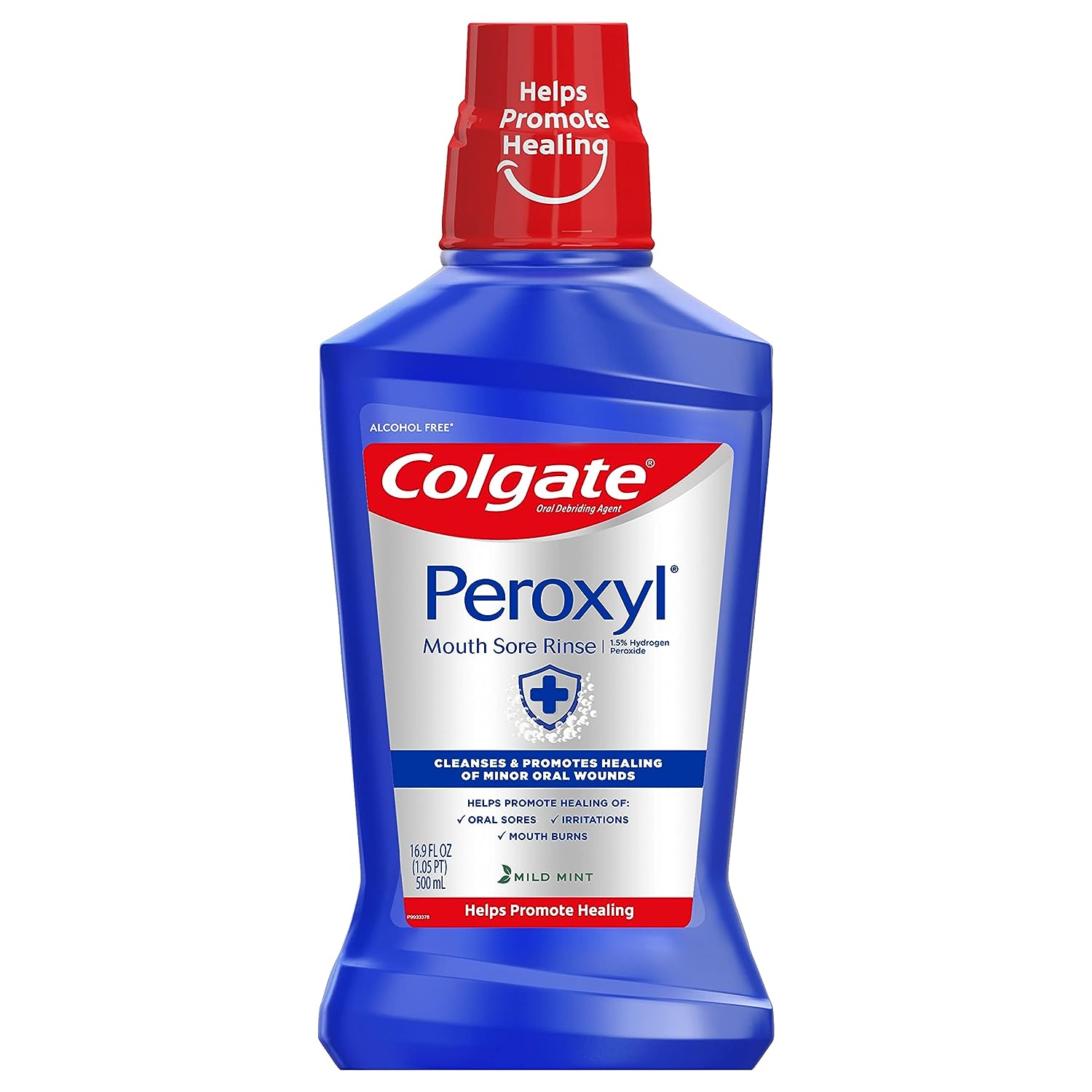 |
COLGATE PEROXYL MOUTH SORE RINSE | Brand: Colgate Product Benefits: Cleansing Liquid Volume: 16.9 Fluid Ounces Flavor: Mint Age Range: Adult |
Check Price |
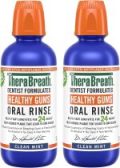 |
TheraBreath Healthy Gums Mouthwash | IT’S A BETTER MOUTHWASH: Try the #1 fastest-growing mouthwash brand in the USA (data on file) | Check Price |
These are the best mouthwashes for toothache that are comfortable. Below are some customer reviews.
some Reviews –

Mouthwash is an essential product for all of us. Which we use in both people. Such as from baby to adult. But we also need to know which is the best mouthwash for kids. Which is good for children’s oral care.
Use of mouthwash in dental care in our daily life
Mouthwash, also known as an oral rinse or mouth rinse, is a liquid product used for oral hygiene and dental care. Here are some common uses and benefits of mouthwash in our daily life:
- Freshens Breath: Mouthwash is widely used to combat bad breath or halitosis. It helps to mask unpleasant odors, kill odor-causing bacteria, and leave a fresh scent in the mouth.
- Reduces Plaque and Gingivitis: Some mouthwashes contain antimicrobial agents, such as chlorhexidine, or essential oils like menthol and eucalyptol, which can help reduce plaque formation and control gingivitis (gum inflammation).
- Fights Cavities: Certain mouthwashes contain fluoride, a mineral that helps strengthen tooth enamel and protect against tooth decay. Fluoride mouth rinses can be especially beneficial for individuals at a higher risk of developing cavities.
- Soothes Mouth Sores: Mouthwashes with ingredients like saline, hydrogen peroxide, or aloe vera can provide relief from minor mouth irritations, including canker sores or mouth ulcers.
- Cleans Hard-to-Reach Areas: Mouthwash can reach areas of the mouth that may be difficult to clean with a toothbrush or floss alone. Swishing with mouthwash can help dislodge food particles, debris, and bacteria from crevices and gaps between teeth, providing a more thorough clean.
- Enhances Overall Oral Hygiene: Using mouthwash as part of a regular oral care routine, in conjunction with brushing twice a day and daily flossing, can help maintain a clean and healthy mouth.
- Provides Temporary Relief: Mouthwash can offer temporary relief from dry mouth (xerostomia) by moistening the oral tissues and stimulating saliva flow. Some mouthwashes also have a mild numbing effect, which can temporarily alleviate minor mouth discomfort.
When using mouthwash, it’s important to follow the instructions on the product label and use the recommended amount.
Managing your toothache at home
If you’re experiencing a toothache and can’t immediately visit a dentist, there are a few steps you can take to manage the pain at home. Start by rinsing your mouth with warm saltwater, as it can help reduce inflammation and alleviate discomfort. Over-the-counter pain relievers like ibuprofen or acetaminophen can provide temporary relief until you can see a professional. Avoid applying aspirin directly to the affected area, as it may cause tissue damage. You can also try applying a cold compress or ice pack to your cheek to numb the area and reduce swelling.
However, it’s essential to schedule an appointment with a dentist as soon as possible to address the underlying cause of your toothache. Home remedies can only offer temporary relief and should not substitute professional dental care.
Fight tooth pain with the best mouthwashes & toothpaste
Tooth pain can be quite uncomfortable, but there are several mouthwash and toothpaste options that can help alleviate the discomfort. Here are some of the best products you can consider:
Mouthwashes:
a. Chlorhexidine mouthwash: This antimicrobial mouthwash helps reduce bacteria in the mouth and can be effective for treating tooth pain caused by gum disease or infections. It is usually available by prescription.
b. Clove oil mouthwash: Clove oil has natural analgesic and antimicrobial properties. Look for mouthwashes containing clove oil to provide temporary relief from tooth pain.
c. Hydrogen peroxide mouthwash: Diluted hydrogen peroxide can help reduce pain and inflammation associated with toothaches. Mix equal parts of 3% hydrogen peroxide and water for use as a mouthwash.
Toothpaste:
a. Desensitizing toothpaste: These toothpaste are formulated to relieve tooth sensitivity and can be effective in reducing tooth pain. Look for brands that contain potassium nitrate or stannous fluoride. Which helps block pain signals to the nerves in your teeth.
b. Toothpaste with baking soda: Baking soda toothpaste has mild abrasive properties that can help remove plaque and reduce tooth pain. It also neutralizes acid in the mouth, which can be beneficial for sensitive teeth.
c. Herbal or natural toothpaste: Some herbal or natural toothpaste may contain ingredients like tea tree oil, aloe vera, or chamomile. Which can have anti-inflammatory and soothing effects on oral tissues, potentially reducing tooth pain.
Remember, these products can provide temporary relief, but it’s important to address the underlying cause of your tooth pain. If the pain persists or worsens, it’s recommended to consult a dentist for a proper diagnosis and treatment.
Using mouthwash before toothache
Using mouthwash before a toothache can help maintain good oral hygiene and prevent dental issues. But it may not directly address an existing toothache. Mouthwash is primarily used to freshen breath, kill bacteria, and reduce plaque buildup. It can be a helpful addition to your oral care routine. But if you’re experiencing a toothache, it’s important to address the underlying cause of the pain.
Toothaches can be caused by various factors, including dental decay, gum disease, tooth fractures, abscesses, or sensitivity. While mouthwash may temporarily alleviate some discomfort by reducing bacteria in the mouth, it won’t cure the underlying problem.
If you’re experiencing a toothache, it’s best to schedule an appointment with a dentist as soon as possible. A dental professional can examine your teeth, diagnose the issue, and provide appropriate treatment. Depending on the cause of the toothache, the dentist may recommend procedures. Such as fillings, root canals, extractions, or other interventions to relieve the pain and restore your dental health.
Remember, maintaining good oral hygiene practices such as regular brushing, flossing, and using mouthwash can help prevent dental problems. But they are not substitutes for professional dental care when you have a toothache or any other dental issue.
Alternative to mouthwash for toothache
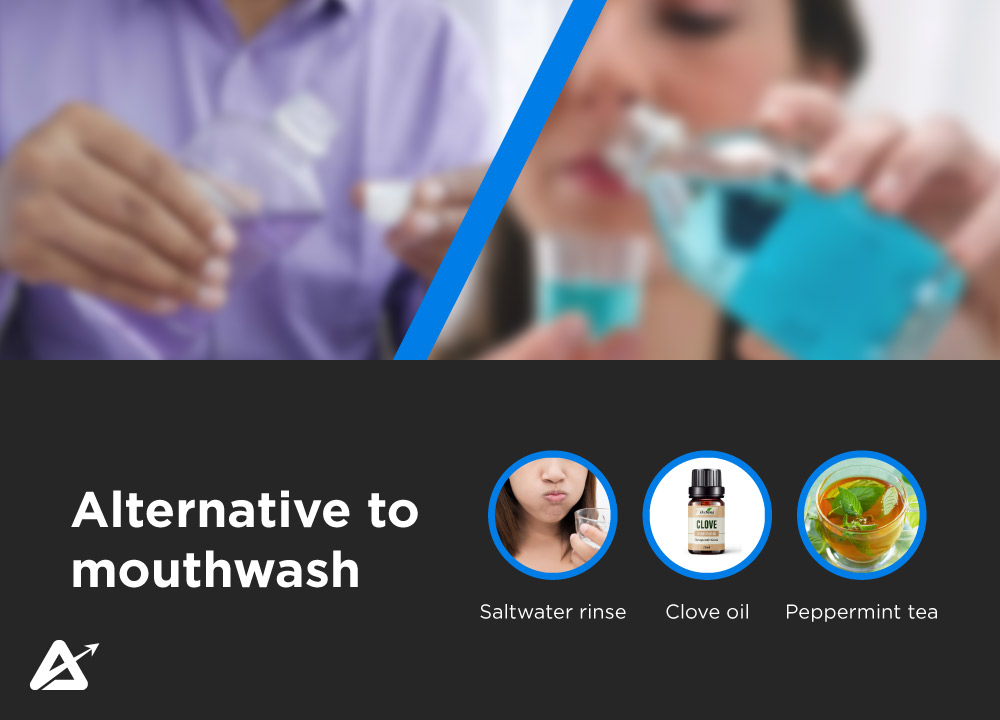
- Saltwater rinse: Mix half a teaspoon of salt in 8 ounces of warm water and rinse your mouth with it for about 30 seconds.
- Clove oil: Apply a small amount of clove oil to a cotton ball and gently dab it on the affected tooth or the surrounding area. Clove oil has natural analgesic and antibacterial properties that can help relieve toothache temporarily.
- Peppermint tea: Brew a strong cup of peppermint tea and allow it to cool down. Use it as a mouth rinse to help numb the pain and provide a soothing effect.
- Garlic: Crush a garlic clove and mix it with a pinch of salt. Apply the mixture directly to the affected tooth or gum area for a few minutes.
- Cold compress: Place a cold pack or ice wrapped in a cloth on the outside of your cheek, near the painful tooth.
- Herbal mouth rinses: Prepare an herbal rinse by steeping chamomile, sage, or calendula flowers in hot water. Allow the mixture to cool, strain it, and use it as a mouth rinse to help reduce inflammation and relieve toothache.
- Over-the-counter pain relievers: Nonsteroidal anti-inflammatory drugs (NSAIDs) like ibuprofen or acetaminophen can help alleviate toothache temporarily by reducing inflammation and relieving pain. Follow the recommended dosage instructions.
- Dental flossing: Gently flossing around the affected tooth can help remove any trapped food particles or debris that may be causing or worsening the toothache.
- Avoiding trigger foods and drinks: Stay away from hot or cold foods and beverages, as well as sugary or acidic substances. Which can trigger tooth sensitivity and worsen the pain.
- Dental check-up: While these alternatives may provide temporary relief. It’s important to visit a dentist to identify and address the underlying cause of the toothache.
No one wants to be around bad breath. Moreover, if we have bad breath, we feel uncomfortable with ourselves. So one needs to find out some of the best mouthwashes to get rid of bad breath.
Conclusion
While these mouthwashes can provide temporary relief for toothache symptoms. It’s essential to remember that they are not substitutes for professional dental care. Toothaches may indicate underlying dental issues that require proper diagnosis and treatment from a dentist. Therefore, it is crucial to consult with a dental professional to address the root cause of the toothache and receive appropriate treatment.
In the meantime, using one of these recommended mouthwashes can help alleviate discomfort and maintain good oral hygiene. Remember to follow the instructions provided by the manufacturer and maintain a consistent oral care routine for optimal results.

